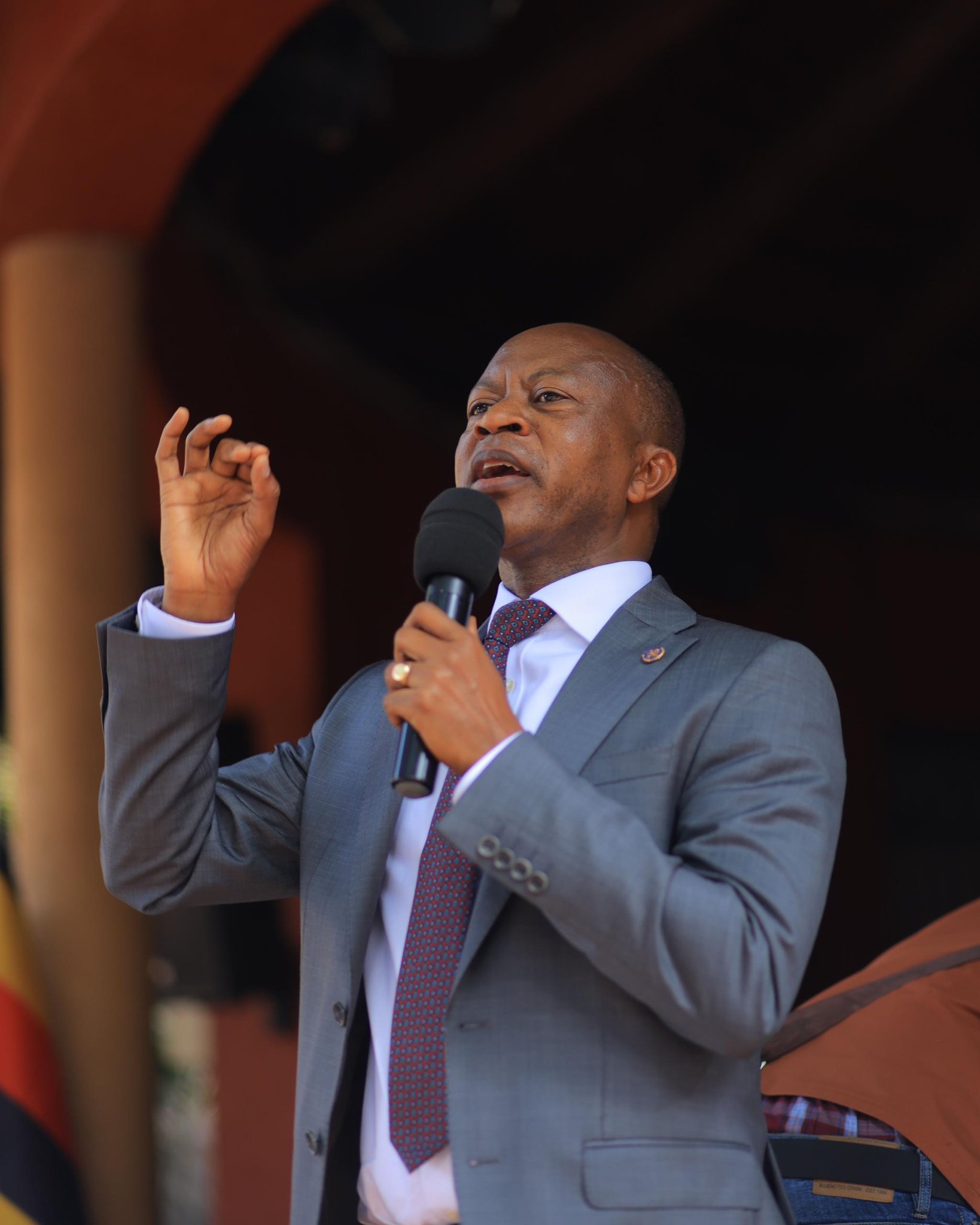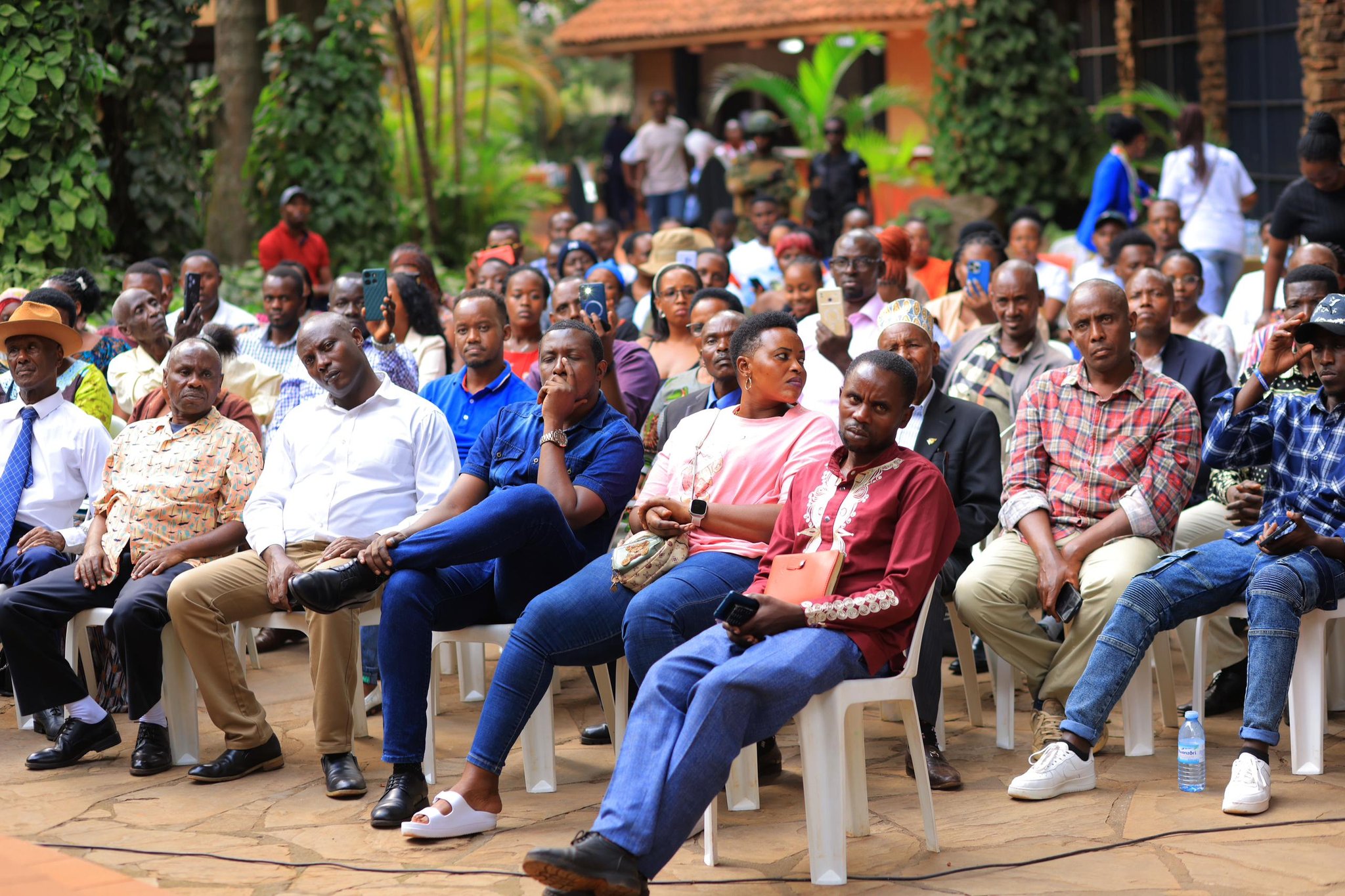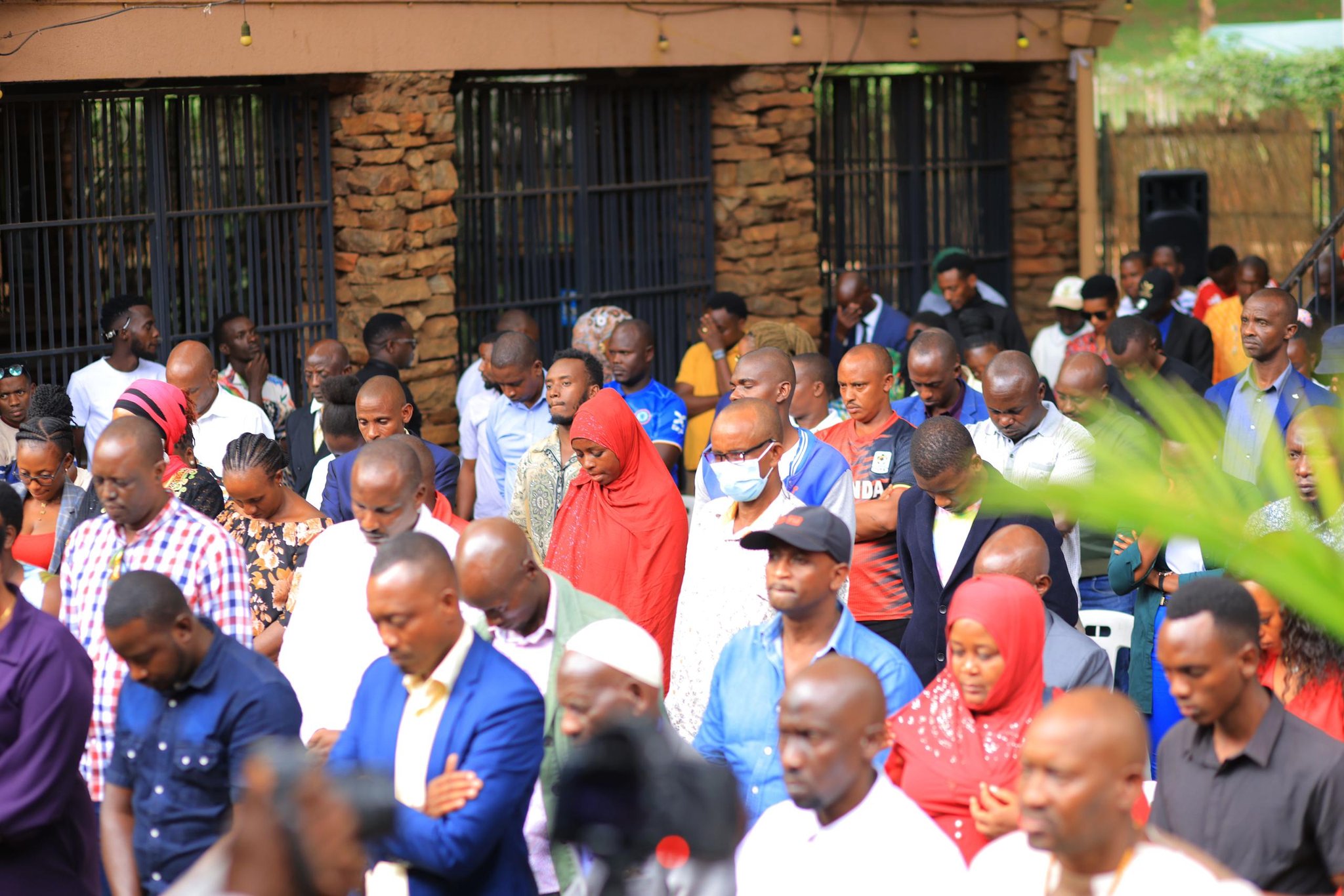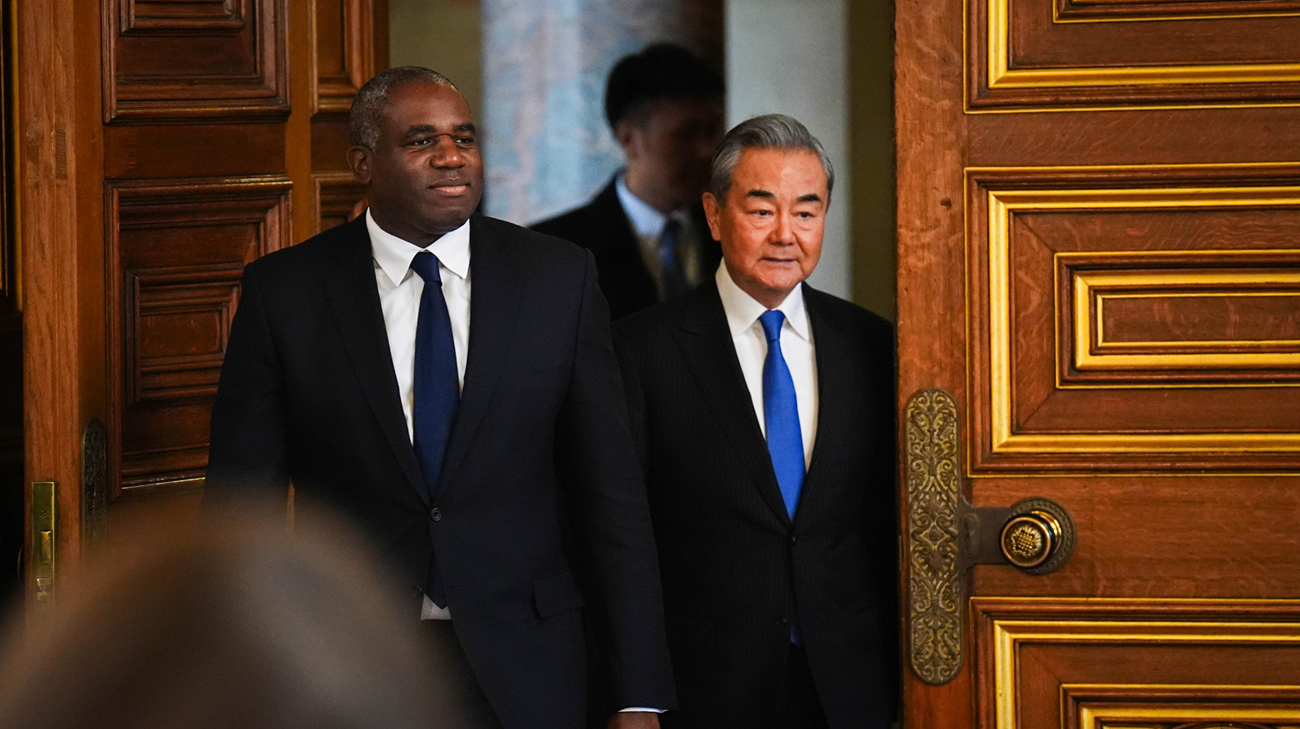President Museveni’s Executive Order Expected to Resolve Citizenship Challenges for Uganda’s Banyarwanda Community
The Council for Abavandimwe, through its Chairman and Co-Founder Frank Gashumba, has voiced pressing concerns over the treatment of the Banyarwanda community in Uganda. In an emotionally charged address that took place on Saturday at Speke Hotel in Kampala, Gashumba urged the government to expedite the issuance of an executive order promised by President Yoweri […] The post President Museveni’s Executive Order Expected to Resolve Citizenship Challenges for Uganda’s Banyarwanda Community appeared first on Watchdog Uganda.

The Council for Abavandimwe, through its Chairman and Co-Founder Frank Gashumba, has voiced pressing concerns over the treatment of the Banyarwanda community in Uganda.
In an emotionally charged address that took place on Saturday at Speke Hotel in Kampala, Gashumba urged the government to expedite the issuance of an executive order promised by President Yoweri Museveni, which is expected to address systemic discrimination and citizenship challenges faced by the Banyarwanda yet it is one of the ethnic tribes recognised by the constitution of Uganda.
Gashumba emphasized that their demands are not for special treatment but for the consistent application of Uganda’s Constitution. “The Constitution of Uganda is very clear. To be a Ugandan, you must belong to the indigenous communities that existed in Uganda before 1926, and the Banyarwanda are listed as number 24,” he said. He criticized the Ministry of Internal Affairs, Immigration, and The National Identification & Registration Authority (NIRA) for selectively applying laws, especially when processing applications for Passports and National IDs.
According to Gashumba, officials at Internal Affairs and NIRA frequently demand proof of lineage dating back to 1926, an unreasonable requirement that he argued no ordinary Ugandan could meet.
“But when our people go to apply for passports, they move from an ethnic group to a family, they will tell you, prove to them with the documents that your grandparents or parents existed in Uganda before 1926 it’s practically impossible. Nobody in Uganda can produce such documents, including the president of Uganda, the Vice President, the speaker, and the Chief Justice, nobody can produce them. It’s the Kings here and royal families but the rest it’s impossible. Only royal families might have such records, yet the Banyarwanda are unfairly subjected to this impossible demand,” he added.

The Council of Abavandimwe is calling for the same treatment afforded to other indigenous ethnic groups in Uganda. “We are saying the same way you interview Baganda….”
Gashumba criticized the assumption by officials that Banyarwanda applicants might be Rwandan nationals seeking Ugandan citizenship. He and his team proposed a straightforward verification process involving recommendations from Local Councils (LCs) and Resident District Commissioners (RDCs), noting that this approach had been previously agreed upon but was never implemented.
“But because there is a country called Rwanda, and always those officials tend to think that citizens of Rwanda tend to come to Uganda and first secure their passport. We told them what, we had to do. Let’s deploy the entire system. If someone is applying for a passport, let him/her be recommended, certified from LC I up to LC five and the RDC. And the people agreed. Unfortunately, these officials at the migration. Don’t allow that.”
Highlighting the gravity of the situation, Gashumba recounted how young Banyarwanda have been denied opportunities due to these systemic biases. Many cannot secure passports to access scholarships, employment opportunities in the Middle East, or even essential medical treatment abroad.
“Some of our people have died, yet they would have survived if they had obtained passports to travel and access medical treatment in other countries. Many young, able Banyarwanda have failed to travel and seek opportunities in the Middle East because they were unable to secure passports. They have been denied access to passports. Others have money in banks—money they worked hard for—but cannot access it because their national IDs were deactivated, leaving them back at zero.

There is also another group: many of our children who received fully funded scholarships to study in Germany or Canada have been denied passports. Yet some of these children have parents who are serving officers in Uganda’s forces. We are not asking for favours; we just need a level playing field,” he recounted.
Dr. Lawrence Muganga, Vice-Chancellor of Victoria University and a leader in the Council of Abavandimwe, echoed Gashumba’s sentiments. He cited Uganda’s constitutional history, which guarantees citizenship to those present in the country on October 8, 1962, the day before independence. The 1995 Constitution reaffirmed that anyone recognized as a citizen under previous constitutions remains a citizen. Dr Muganga argued that these provisions are being selectively interpreted to marginalize the Banyarwanda community.
“I understand that immigration interprets the law in its way and strives to act within its boundaries. However, we all need to come together in one room guided by our legal system, advised by lawyers, and supported by all stakeholders to ensure that the right actions are taken. Discrimination must be eliminated, oppression must end, and we must work towards building the fair and just country we aspire to empower as citizens.”
Dr. Muganga shared personal experiences to illustrate the human impact of these injustices. “I have a mother who is critically ill and might need treatment abroad, but her passport has expired. Renewing it has become a nightmare because of unnecessary scrutiny. This is the reality for many Banyarwanda families, and it’s heartbreaking,” he said.
On the coming executive order, Dr Muganga said; “We are eagerly waiting, just like many others in this country who share the same hope. We believe this can wipe away the tears of so many people and restore their dignity.”
The Council outlined four key demands for the forthcoming executive order: equal application of the law without bias by NIRA and immigration officers; restoration of deactivated national IDs for Banyarwanda citizens; simplification of passport application procedures through local-level verification; and fair hearing processes before revoking citizenship rights.
Gashumba also criticized NIRA’s practice of arbitrarily deactivating national IDs based on names perceived to be of Rwandan origin, such as Kayitale and Kayitesi, without giving the individuals a fair hearing. He argued that such actions violate the law, which mandates due process before any revocation of citizenship or national ID.
Despite these challenges, Gashumba expressed hope in President Museveni’s commitment to addressing these issues. “The President assured us that an executive order is coming, and it will be based on recommendations from the Solicitor General and Attorney General. We trust that this order will restore dignity and fairness to our people,” he said.
The Council emphasized that their advocacy is not about seeking favours but about ensuring justice and equality for all Ugandans. They believe the executive order will mark a turning point, wiping away the tears of those who have suffered discrimination and creating a more inclusive Uganda.
As the nation holds its breath for the promised executive order, the Banyarwanda community clings to hope—hope that their enduring cries for justice will finally be heard, that the shadows of exclusion will give way to the light of recognition and that they will be embraced as vital threads in the fabric of Uganda’s progress.
For, paradoxically, in the season of elections, they are Ugandan enough to cast their votes, yet in the quest for equality, they find themselves treated as strangers by NIRA and the Ministry of Internal Affairs in the land they call home. They only yearn for the dawn of an Uganda where their identity is honoured, not questioned, and their citizenship is valued beyond the ballot box.
The post President Museveni’s Executive Order Expected to Resolve Citizenship Challenges for Uganda’s Banyarwanda Community appeared first on Watchdog Uganda.



